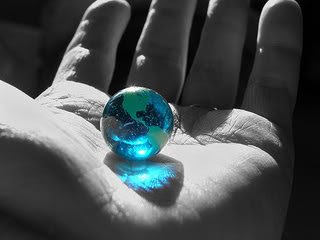 I have a sizeable “V-shaped” scar on my right forearm. It looks like I was bit by a Pit Bull. In fact, I often tell people who ask that is what happened. Or I’ll claim it was an injury I sustained “in ‘Nam” even though I was five when the Vietnam War had ended. It always raises an eyebrow when I say it, which gives me great satisfaction. I’m not sure why I enjoy saying that. I’ll have to work that one out with my counselor.
I have a sizeable “V-shaped” scar on my right forearm. It looks like I was bit by a Pit Bull. In fact, I often tell people who ask that is what happened. Or I’ll claim it was an injury I sustained “in ‘Nam” even though I was five when the Vietnam War had ended. It always raises an eyebrow when I say it, which gives me great satisfaction. I’m not sure why I enjoy saying that. I’ll have to work that one out with my counselor.
My scar is the result of a freak accident when I was ten years old. During an intense backyard baseball game (think Sandlot), my moving arm caught the bar of a nearby swing set. As my forearm struck the metal pole, a rusty screw was sticking out and grabbed the flesh, severing nerves and tearing tendons. Game over. Six hours and eight surgical staples later, my arm was “fixed.” It happened to be Mother’s Day. Nothing says “Happy Mother’s Day” like seeing a child in the E.R. on her special day.
We all have scars. They seem to be the by-product of life. Some of our scars are physical. Others are emotional or mental. But if we are honest, we all have some. Some we can show off to others and even laugh about their origins. Others are so painful to discuss or even reveal – we do our best to hide them from sight or even our own memory. Some may affect our lives for a day or a week or a month. Others are life-changing. I have a combination of both. I have come to appreciate the scars (physical & emotional) I have acquired in my first forty-two years. Having said that, I am hoping to receive less scars in my last four or five decades on this planet. Regrettably, because of foolish decisions and poor choices, I have unknowingly given some scars to others in my path. For that, I am truly sorry.
Scars reveal a past hurt. Scars hide a previous pain. They normally point to a regretful experience and a painful past. Some scars are the result of a true “accident”. Other scars are because of foolish decisions. The hardest scar to heal from is the one received unwillingly by another’s selfish action. Children of divorce understand that scar all too well.
As I look back at some of my scars (physical & emotional), I have come to appreciate them in a new light. That appreciation has not come easily or quickly. Whereas before I might have tried to make up a palatable story to explain the scar’s existence, now I just tell the story “as is.” Whereas before I might have tried to cover up the mark and avoid talking about it, now I embrace it as part of the “new me.” Some people, depending on their scar or the pain that caused it, will not be able to reach my same level of transparency. Others, over time, might come to a point where they are even thankful for the experience that caused the scar. For the most part, I am at that stage. I am grateful for the experiences and their scars as it has taught me some valuable lessons I could not have learned without them.
I am a firm believer that everything happens for a reason. As a result, I tend to think my scars exist in order to teach me a greater lesson. Sometimes I wonder if some of my scars are not for me as much as they are for others. Seeing that God’s ways are not my ways and His thoughts are not my thoughts (Isaiah 55), God could allow me to receive a scar for the sole benefit of others. Being that He is multi-dimensional, He could also use one scar to teach multiple people multiple lessons. The book of Job is an example of that. Because I do not know the cause of your particular scar, I will not assume that the lessons I glean should be applied to you. That is your call. Having said that, here are a few lessons that my scars have taught me.
- My scars remind me of where I have been. Depending on the scar and it’s cause, this can be an extremely painful reminder, particularly if the scar is from someone else’s selfish act. But I have found it is a good reminder (from time to time) as I can better appreciate where I am today. Those who deny the existence of the pain that caused the scar or the scar itself cannot ultimately heal like they need to. Too often we try to cover the scar instead of embracing it, to our own detriment. At the very least, we need to work through the pain and do what we can to reduce the scar tissue.
- My scar reminds me to be careful in the future. Every scar comes with a lesson. For a burn mark on a toddler’s hand, the lesson is do not touch a hot stove. The physical scars usually communicate a very clear lesson like – do not run into swing sets. The emotional or mental scars may be harder to discern what the lesson is. They can certainly take more time to uncover. Even so, there is always something we can learn from our scars and therefore it is always worth the time invested to discover it. Take the time to do the research on what caused it and what needs to happen so you don’t experience any more. Needless to say, I no longer play backyard wiffle ball with a rusted swing set near the bases.
- Each scar helps me empathize with others who have similar scars. If I have the scar of surviving cancer, I can empathize with those who are in the midst of receiving their cancer scar. If I have the scar of losing a child or losing a job or losing a relationship, I can help others through the same painful loss. There is a great power in empathy. There is a special bond that is created when you are truly able to relate (experientially) to another man’s pain. As II Corinthians 1 reminds us, “…the God of all comfort, who comforts us in all our affliction so that we will be able to comfort those who are in any affliction with the comfort with which we ourselves are comforted by God.” The goal with every scar is to eventually get to a point where you can help others deal with theirs. We are on this planet together for a reason. We are our brother’s keeper. In that place of comforting others, you often find an unexpected healing in you.
- A scar is a sign of healing. “Every significant wound results in some degree of scarring. A scar results from the biological process of wound repair in the skin and other tissues in the body. Thus, scarring is a natural part of the healing process.” (Wikipedia.org) If there wasn’t a scar, it would still be a wound. The fact that there is a scar reveals that there has been some level of healing. Some of the scars I have experienced have taken me years before I could get in a position to talk about it or help others. Other scars I can talk about relatively quickly. The fact that there is a scar is a good sign. The painful experience is over. Healing has begun.
Though most of us would not have chosen many of the negative experiences we have gone through, as we look back we can see some good that has come out of it. God has the unique ability to make an ugly scar beautiful (Romans 8:28).
When I was five years old, my Dad died in front of me. As he took a nap on the couch, I was playing nearby on the floor with my brother. While he was asleep, his lungs inexplicably collapsed and he died. It is my only true memory of my father. For the last 37 years I have carried that scar of a lost relationship. I missed out on all the typical father/son activities. To my frustration, I grew up watching many children not appreciate their parents. One of the lessons that particular scar taught me is that life is short and precious and to appreciate those you have – while you have them. The loss of my Dad has also made me a better parent – another valuable lesson gleaned from that scar. Though the scar is painful, even to this day, much good has come out of it. Over the years I have been able to help comfort dozens of children and teenagers who have lost a parent suddenly. Without my particular scar, such comfort would have been impossible.
Perhaps the next time you look at your own scars, you will have a different perspective? Perhaps one day you will have the courage to embrace a particularly painful scar or the reason for its existence? Maybe there is a lesson for you in the scar? Maybe the lesson is for someone else? Maybe even one day you will get to the point of helping others handle theirs? Your scar, though created by pain, could end up being something very beautiful to behold.
One last thought…
On the night that Jesus was resurrected from the dead, He appeared to His disciples (John 20). After greeting them, the very first thing He did was show them His scars – the scars given to Him as a result of the cross. The scars on His hands, side & feet were significant as they pointed to an extremely painful past. Jesus could have covered them up. He could have gotten mad at the Jews for giving them to Him. He could have blamed the Romans for scarring the hands that made them. Instead, He was quick to show them off because He recognized the purpose behind them. His scars revealed that healing had occurred. As the prophet Isaiah wrote 700 years before, “He was pierced through for our transgressions, He was crushed for our iniquities; He was beaten so we could be made whole. By His wounds, we are healed. (verse 5)” In other words, His hands were scarred so ours don’t have to be.
When I get to Heaven, I want to see His scars. After all, without them, I’d never be there.
His scars are visible for a reason. So are yours.

